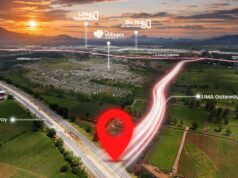In a series of field surveys conducted from 1997 to 2012, the Philippine Eagle Foundation, Inc. (PEFI) discovered that the Mount Talomo-Panigan watershed area is home to at least 124 species.
About 45 of 169 endemic bird species found in the Philippines, 45 of them are in living in Mindanao only and could not be found anywhere else in the country.
Sixty-six of the 124 species – which were covered by the research study commissioned by the Interface Development Interventions, Inc. (IDIS) – are endemic to the country, while 24 of them are found only in Mindanao.
As such, the study authors surmised that the watersheds hold an “impressive” percentage of local avian fauna.
This significant find, IDIS believed, underscored the importance of Davao’s watersheds in protecting and sustaining a rich biodiversity of organisms that can only be found in the Mindanao region.
“Healthy watersheds are a vital reservoir of biodiversity which must be protected in order to sustain our local flora and fauna,” Ann Fuertes, IDIS executive director, said in a statement.
The Talomo-Panigan watershed areas, along with the adjacent Lipadas, are also the sites of aquifers which provide the current and future water supply of the people of Davao City. In recent years, corporate plantations have expanded into the area, clearing the fertile forest land to grow bananas and pineapples for export.
The birds and the watersheds are part of what experts called as biological diversity (biodiversity). Oftentimes, people thought of biodiversity as the variety of organisms on earth.
Yet it also includes two other factors: ecological diversity (the variety of ecosystems and ecological communities) and genetic diversity (the range of genetic differences found within and between species).
“All three aspects are crucial for the success and development of life on earth,” explains People and the Planet, a group raising environmental concerns based in London. “Since environmental conditions at every level are constantly changing, only diversity can ensure that some individuals and species will be able to adapt to the changes.”
Why so much ado about biodiversity loss? “The loss of species touches everyone, for no matter where or how we live, biodiversity is the basis for our existence,” wrote John Tuxill and Chris Bright, authors of Losing Strand in the Web of Life. In other words, without biodiversity man ceases to exist.
Dr. Peter Raven, a well-known American biologist, cites three reasons why biodiversity should be conserved and protected; these are ethical and aesthetic, economic, and services.
To explain the first reason, he quotes the words of Paul Ehrlich and Ed Wilson, authors of Extinction: The Causes and Consequences of the Disappearance of Species: “Because Homo sapiens (human beings) is the dominant species on Earth, we and many others think that people have an absolute moral responsibility to protect what are our only known living companions in the universe.”
The Holy Bible itself states so. God told Adam and Eve, the first human beings: “Rule over the fish of the sea and the birds of the air and over every living creature that moves on the ground” (Genesis 1:28).
In terms of economic value, Dr. Raven says the world’s population use organisms for food, medicines, chemicals, fiber, clothing, structural materials, and energy, among many others. “Biodiversity provides a wealth of genes essential for maintaining the vigor of our crop and livestock,” Tuxill and Bright reminded.
Some 100 kinds of plants – including rice, wheat, corn, potato, and cassava – provide the great majority of the world’s food. “There might be tens of thousands of other plants that have edible parts and might be used more extensively for food, and perhaps brought into cultivation, if we knew them better,” Raven notes.
That was what God told Adam and Eve, too: “I give you every seed-bearing plant on the face of the whole earth and every tree that has fruit with seed in it. They will be yours for food.
And to all the bests of the earth and all the birds of the air and all the creatures that move on the ground – everything that has the breath of life in it – I give every green plant for food” (Genesis 1:29-30).
Biodiversity provides pollination services, mostly in the form of insects, without which the world could not be fed.
Frogs, fish, and birds provide natural pest control; mussels and other aquatic organisms cleanse the water supplies; plants and microorganisms create the soils.
By saving the world’s biodiversity, man also saves the natural ecosystems in which they thrive and dwell.
Ecosystems, functioning properly, are responsible for the Earth’s ability to capture energy from the sun and transform into chemical bonds to provide the energy necessary for the life processes of all species, including human beings.




